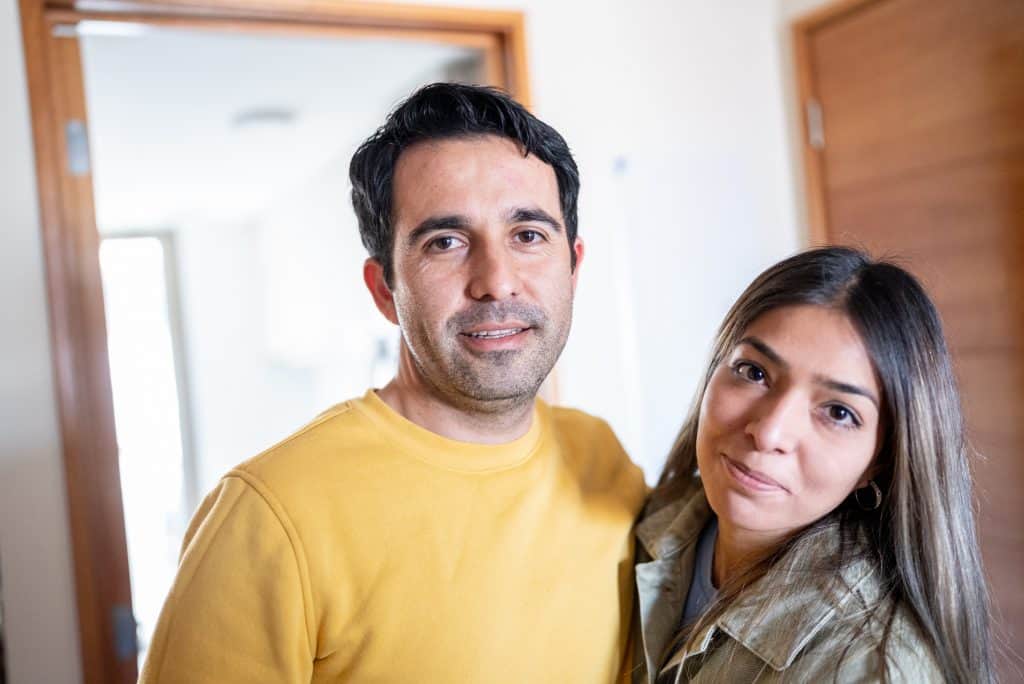
Julie St.Onge is the founder of New England Coaching Services LLC and the New England Betrayal Trauma Conference. She has a background in nursing (with an RN license!) and has worked in a variety of medical settings. Through many life challenges, Julie has found her true passion for emotional resilience and regulation.
This article is written from the perspective of men struggling sexually and women in the Betrayal Trauma position. This can occur in both directions where the wife struggles and her husband is experiencing Betrayal Trauma.
I have been a nurse for 20 years. I am a trauma-informed, APSATS trained life coach and founded New England Coaching Services and The New England Betrayal Trauma Conference. By combining the two and using a holistic approach, I help women heal from the effects of Intimate Partner Betrayal. This occurs when their spouse acts out with pornography and sexual acting of other forms.
I am also the partner of a man recovering from pornography addiction. We married young and quick. He thought marriage would fix his sexual struggles. My husband and I sought help for many years knocking on pastors’ and counselors’ doors. It was a complex situation and they tried to help more than once.
Often the diagnosis others gave us was that we both had contributed to the problem. Some would do personality assessments and spend hours with us, but the cycle of dysfunction came back. Others said we should stop reaching out and that they could not help. While I admit that I am not perfect I was transparent about my struggles and had been faithful.
My husband struggled with rage and anger for 17 years of our marriage. Pastors would say, “This is normal. It’s an every guy struggle.” I would leave discouraged and resigned to live the cycle of a home full of his frustration, yelling or shutting down, reaching out for help, short periods of accountability, and back for help. We moved many times because my husband was trying to outrun himself and his problems. It was a geographic cure. He wanted to be a man of God and yet kept people at arm’s length because they might see the real him or his struggles.
The Importance of Therapeutic Disclosure
Eventually, we ended up in a broken-down camper without food, money, or healthcare. Destitute, I cried out to God and he gave me this verse, “I will lead the blind by ways they have not known, along unfamiliar paths I will guide them; I will turn the darkness into light before them and make the rough places smooth. These are the things I will do; I will not leave them.” Isaiah 42:16. I knew this would not mean trouble-free or pain-free living but that through it all, God would stay with me.
Between my first discovery of my husband’s addiction and second discovery he was white-knuckling recovery. He was trying so hard knowing it meant his marriage but did not have the understanding, support, or skills to stop. He also still carried secrets that pulled him back into darkness.
I found a support group led by an APSATS trained person. They encouraged me to listen to what I needed to feel safe, set boundaries, and fight hard to call him to something better. My husband started to do the action steps which included: regular group attendance, seeing a counselor, and a primary care visit for ADD evaluation.
We had a therapeutic disclosure by professionally trained counselors and coaches where all the secrets came out. The first time we went to church after the disclosure he was breathing so steady and sitting relaxed that I thought, “He’s at peace for the first time.”
This is a hard process but the conscience cleanout and understanding that you are fully known and fully loved is so healing for those struggling with addiction. This was followed by a polygraph to ensure honesty. This does not always guarantee reconciliation but can help the healing process for both people.
Establishing Pro-Dependency
If a woman is not ready or does not want disclosure please don’t push. It’s not about clearing your conscience as much as it is about helping her feel safe. You can do therapeutic disclosures with your counselor or coach even if your partner does not participate and it will still be beneficial. She may need support and help with trauma before she feels ready to go through the process. For some couples, it is not recommended.
Starting with the phrase, “What do you need to feel safe again?” and then acting on those requests, is so important. Then be prepared to LISTEN. I cannot stress enough that your job is not to fix her but to help her feel safe and listen. After a disclosure or discovery, your wife needs to feel safe first and foremost. This is what has helped me heal the most. My husband has taken the steps of recovery as I requested not as he saw fit.
When a partner is blamed for her husband’s lying and unfaithfulness this causes therapeutic trauma and great damage. Instead of labeling partners as addicted to the addict or codependent, I prefer the Betrayal Trauma Model. Her continued hope and desire to stay are pro-dependent in nature.
Pro-dependent means she sees the benefit of staying and the benefits of the relationship. Betrayal Trauma Models state that when an intimate partner betrays the monogamous attachment bond an attachment rupture occurs causing deep emotional dysregulation and trauma symptoms which last months to years.
There also seems to be a double bind for partners where they are faulted for staying in the home and relationship as codependent and faulted if they use the boundary of separation as not fighting for their marriage. There seems to be no winning for them. I view boundaries like separation as her need for safety being honored and her calling him to something better.
What I have learned is that the struggle with addiction can stem from many root causes and often has more than one root cause. Some root causes of addiction are trauma, ADHD, anxiety, depression, emotional dysregulation, attachment and intimacy disorders, lack of coping skills, and personality disorders.
The Betrayal Trauma Model
I develop safety plans (physically, emotionally, intellectually, spiritually, financially), boundaries, communication tools, facilitate therapeutic disclosures, and aftercare for both parties.
Here are my best recommendations for those struggling with addiction:
- Find a therapist or coach who is CSAT (Certified Sex Addiction Therapist) and/or APSATS (Association for Partners of Sex Addicts Trauma Specialist) trained and make sure you are making progress. If you are relapsing every day or even every few weeks evaluate the plan and find what’s missing.
- Focus on finding root causes, not focusing on just behavior modification.
- Build coping skills for stress.
- Boost empathy.
- Build a community in recovery.
- Use brain tools like Neurofeedback, EMDR, and Brain Spotting to help your brain heal from trauma and build new pathways.
For partners healing from Betrayal Trauma:
- Find a coach or therapist who is APSATS trained.
- Group support is a massive component.
- Try the above brain therapies for trauma healing. These show physical differences in MRIs following treatment.
- Learn to use your voice and not abuse or be abused.
- Be speaking with your doctors about possible STD testing and brain chemical balance if you have serotonin dopamine depletion’s signs.
- Build coping tools, resources, and support.
- Attending a conference can be a huge healing piece. We are facilitating The New England Betrayal Trauma Conference: an International Event for Betrayed Women on October 10th. This is an online, faith-based event that can be attended anonymously or interactively.
I do not believe that a woman should reconcile in the midst of an unsafe situation be it emotionally or physically. She and her team need to carefully assess the readiness of her spouse to do the work. It’s not about him doing recovery perfectly but his broken, open, willing demeanor and the presence of progress even in the smallest form.
Forgiveness and Reconciliation Are Different
It is important to understand that forgiveness and reconciliation are different concepts and actions. My heart is for healthy, whole people living in transparency and authenticity before God and men.
Trust and respect can be restored when steps are taken to help your partner feel safe again. Both parties have work to do in healing. There has to be a readiness and willingness for both parties to heal. The addict has recovery work, and the partner has healing to do. Today, my husband is in recovery leading men’s groups and mentoring them. I respect him now more than ever.








0 comments.